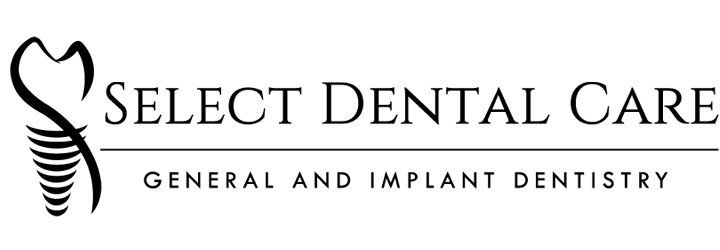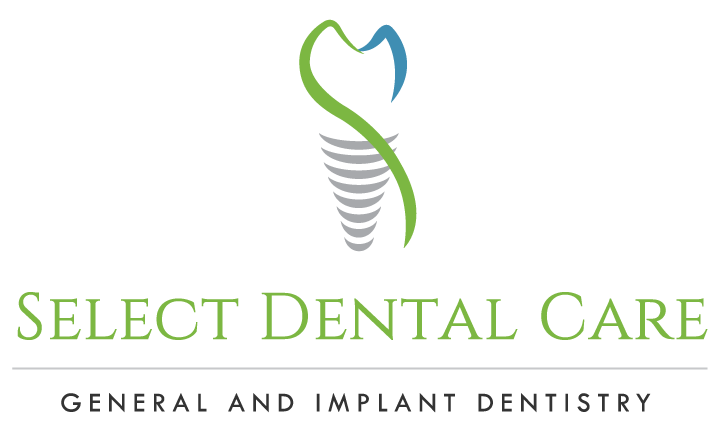Oral Surgery & Traumatic Dental Injuries in Coral Springs, FL
We provide expert oral surgery services at Select Dental Care, including tooth extractions, wisdom teeth removal, bone grafting, and treatment for traumatic dental injuries. If you're looking for a trusted oral surgeon in Coral Springs, FL, our skilled team ensures a comfortable, pain-free experience using advanced techniques and sedation options.
Surgical Extractions
Severe trauma, gum disease, decay, or fractures can make saving a tooth impossible. An extraction may be the best option to protect your oral health in such cases. Our experienced oral surgeon in Coral Springs makes the process as smooth and painless as possible, offering sedation options for your comfort.
📞 Schedule a consultation today! Call
(954) 799-3765.
Wisdom Teeth Removal in Coral Springs
Wisdom teeth can cause serious problems when they don’t emerge properly, leading to pain, infections, and damage to surrounding teeth. Removing them early prevents complications and ensures an easier recovery.
Read More
Common Issues Caused by Wisdom Teeth Misalignment:
✔️ Swollen, painful gums
✔️ Infections & inflammation
✔️ Crowding or damage to nearby teeth
✔️ Nerve or jawbone complications
What to Expect During a Wisdom Teeth Extraction:
1️⃣ Anesthesia – Local sedation or general anesthesia is administered.
2️⃣ Gum Incision – A small incision is made if the tooth is impacted.
3️⃣ Bone Removal – If necessary, the bone covering the tooth is removed.
4️⃣ Tooth Extraction – The wisdom tooth is gently removed.
5️⃣ Site Cleaning – The area is cleaned to prevent infection.
6️⃣ Stitches (if needed) – The gum may be stitched for proper healing.
7️⃣ Gauze Placement – Helps control bleeding and promotes clotting.
💡 Our Coral Springs oral surgery team will guide you through post-op care for a smooth recovery!
📅 Book your wisdom teeth consultation today! Call (954) 799-3765.
Bone Grafting
Missing teeth can lead to jawbone deterioration, affecting facial structure and making dental implants more difficult. Bone grafting restores lost bone, allowing for future implants and improving oral health.
Additionally, socket preservation is often recommended after an extraction to protect the area and prepare for future restorations.
Are you looking for a Coral Springs oral surgeon for bone grafting? Our experienced dental team offers state-of-the-art oral surgery to restore your oral health.
Socket Preservation
When a tooth is extracted, the procedure leaves behind a small hole where the tooth once was. This socket can be very sensitive at first, which is why your provider may recommend socket preservation to go along with your extraction.
Read More
It's not uncommon for the bone that previously supported the tooth to melt away once the tooth is removed – it doesn't serve a purpose anymore. When this bone fades away, however, gaps form between the teeth, or the teeth can move out of alignment. This is why a socket preservation is typically performed at the same time as the tooth extraction itself.
Protecting the socket after a tooth extraction is very important. One reason to protect the socket is to avoid the development of a dry socket, which can form if the blood clot that protects the healing area is knocked loose, exposing the nerve beneath it.
A socket or alveolar ridge preservation procedure involves placing a bone graft into the socket, where the tooth once was. This graft can be made of synthetic materials, bone from other animals (such as cows) or human bone. After putting the graft in the socket, the provider usually covers it up with a collagen membrane and sutures the opening to keep it closed. The goal of socket preservation is to improve the appearance of the remaining teeth and gums and to make the process of getting a dental implant (at some point down the line) less complicated.
If you have any concerns about an extraction's resulting socket, whether or not you've had a preservation procedure, reach out to your provider at Select Dental Care for advice. Call our office at (954) 752-9065.
BotoX
Botox is composed of botulinum toxin, a form of a purified protein used to treat a number of cosmetic and oral issues. It is injected into the facial muscles and blocks the nerve transmission to those muscles. As a result, the dynamic motion in the skin is relaxed, allowing the wrinkles to smooth and disappear. Common injection sites include the forehead, the area between the eyebrows, the corners of the eyes, and the sides of the chin.
Read More
For patients wishing to erase the signs of age and enjoy a more youthful appearance, Botox injections effectively treat facial wrinkles and lines, minimizing and sometimes eliminating them altogether. The procedure is quick, requires no anesthesia and takes anywhere from a few days to a week to take full effect. It is a safe and well-established technique that can be performed by your oral surgeon at Select Dental Care. Oral surgeons are uniquely suited for providing Botox treatment. We are skilled at assessing the balance and overall aesthetics of the face and have had extensive training in the anatomy of the head and neck.
Call Select Dental Care at (954) 752-9065for an appointment today and find out how you can experience the unique benefits of Botox.
Local Anesthesia
Depending on the dental procedure, your dentist may determine that you only need a relatively small area to be numbed during surgery so that your visit is comfortable and pain-free. There are two kinds of numbing injections
When performing oral procedures that require numbing, dentists employ two kinds of local anesthesia, block injections, which numbs an entire region of your mouth, such as one side of your lower jaw, and infiltration injections, which numb a smaller area.
Read More
When is Local Anesthesia Used in Dentistry?
In order to perform safe and comfortable dental procedures, your dentist will sometimes need to numb a part of your mouth in order to perform an invasive procedure. In this instance the dentist will inject a local anesthesia, like Lidocaine, into your gums or inner cheek.
Types of Local Anesthesia
There are two kinds of numbing injections. The first is a block injection which numbs an entire region of your mouth, such as one side of your lower jaw. The other is an infiltration injection which numbs a smaller area near where the injection was given.
How Local Anesthesia is Administered
If you need local anesthesia in order to have your dental treatment done, your dentist will dry part of your mouth with air or cotton. Many dentists then swab the area with a gel to numb the skin. Then your dentist will slowly inject the local anesthetic. Lasting up to several hours, local anesthesia is often felt by patients as a brief sting which is caused by the anesthetic moving into the tissue.
The dental team at Select Dental Care will make sure your dental procedures are as pain-free as possible. For more information on local anesthesia, call us at (954) 752-9065to schedule an appointment.
Oral Pathology
Oral pathology is the specialty of dentistry and discipline of pathology that deals with the nature, identification and management of diseases affecting the oral and maxillofacial regions (the mouth and jaw areas). The practice of oral pathology includes research and diagnosis of diseases using clinical, radiographic, microscopic, biochemical or other examinations.
Read More
What is Oral Pathology?
Oral pathology is the specialty of dentistry and discipline of pathology that deals with the nature, identification, and management of diseases affecting the oral and maxillofacial regions (the mouth and jaw areas). It is a science that investigates the causes, processes, and effects of these diseases. The practice of oral pathology includes research and diagnosis of diseases using clinical, radiographic, microscopic, biochemical or other examinations. Call Select Dental Care at 954-752-9065 to schedule an appointment and learn more about our oral pathology services in Coral Springs, Florida!
Common Oral Health Issues
- Misaligned jaw
- Cleft lip or cleft palate
- Periodontal disease
- Oral cancer
- Oral ulcers
- Infections
- Prolonged pain
- Cavities
- Tooth Loss
Why Oral Pathology is Important
A healthy mouth is essential in maintaining optimal overall health. Oral pathology helps diagnose any oral health problems you may have, as early as possible, so you can get the treatment you need to improve your oral health.
If you have any oral health concerns or questions about our oral pathology services in Coral Springs, please call our office at (954) 752-9065today!
Soft Tissue Grafting
Soft tissue grafting is often necessary to combat gum recession. Periodontal disease, trauma, aging, over-brushing, and poor tooth positioning are the leading causes of gum recession, which can lead to tooth-root exposure in severe cases. Recent developments in dental technology have made soft tissue grafting more predictable and less intrusive.
Traumatic Dental Injuries & Emergency Oral Surgery
Traumatic Injuries – Endodontics
Endodontists specialize in traumatic dental injuries and are often able to save injured teeth. Traumatic dental injuries often occur in accidents or sports-related injuries. Chipped teeth account for the majority of all dental injuries. However, dislodged teeth, knocked out teeth and root fractures are all considered traumatic injuries. No matter your dental injury, you should see a dentist or endodontist immediately.
Chipped or Fractured Teeth
Treatment for chipped or fractured teeth depends on the severity of the damage. Options include:
✔️ Reattaching the broken piece (if available)
✔️ Tooth-colored fillings for minor chips
✔️ Crowns (caps) for larger fractures
✔️ Root canal treatment or extraction in severe cases
Dislodged Teeth
If a tooth is dislodged from its socket, root canal treatment is often needed to save it. However, treatment may not always be necessary in children with developing teeth. A Coral Springs endodontist or oral surgeon will determine the best course of action.
Knocked Out Teeth
If a tooth is completely knocked out, time is critical! See a dentist or oral surgeon in Coral Springs, FL, immediately. The sooner the tooth is reimplanted, the better the chances of saving it. The tooth will be placed back into the socket and stabilized with a splint for several weeks.
Root Fractures
Trauma can cause horizontal root fractures, which may require a stabilizing splint to heal. The location and severity of the fracture will determine whether the tooth can be saved.

Book Your Appointment Today
Why Choose Select Dental Care for Oral Surgery in Coral Springs, FL?
📞 Have questions? Need urgent oral surgery? Call us now at(954) 752-9065



